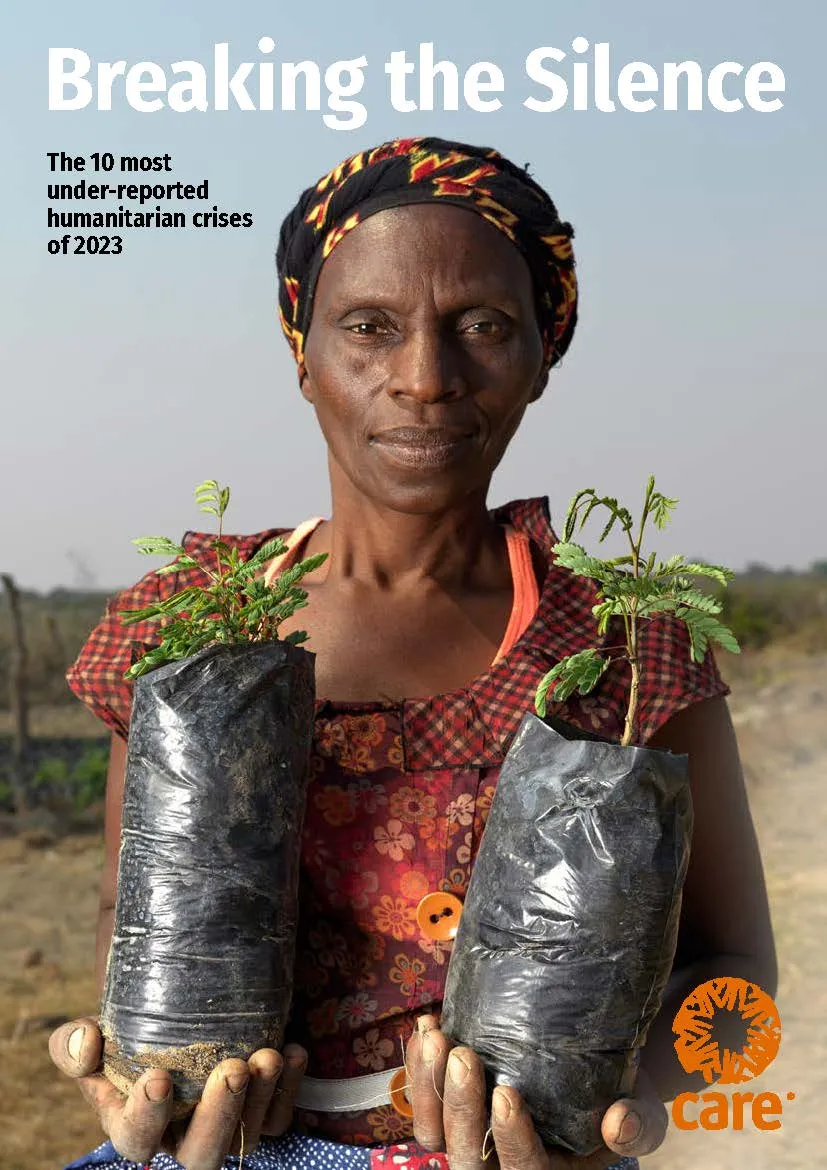Introduction
This will be the eighth year in a row that CARE has produced this report – almost a decade of highlighting forgotten humanitarian crises. These crises all represent millions of men, women and children struggling to survive in the face of hunger, climate change, conflict and insecurity.
For the second year in a row, all ten of the most under-reported crises are in Africa. From conflict in Angola to climate change in Zimbabwe, every entry in this report represents countless human tragedies taking place in the shadows of the world’s gaze.
Our second most under-reported crisis country, Burundi, briefly hit the headlines in the summer of 2023, when ten Burundian handball players ran away from the Under-19 World Cup in Croatia. They later turned up in Belgium seeking asylum, after which the media spotlight turned away again – the individual stories behind Burundi’s shocking poverty statistics once again unheard.
Meanwhile, women’s rights and empowerment were lauded in over 273,000 online articles about the new Barbie film, while the abuse of those same rights in every country in our report received next to no coverage. The crisis in Angola, for the second year in a row, received the least media attention in 2023. Despite 7.3 million people in the country in desperate need of humanitarian aid, it received just 1,049 media mentions this year. By comparison, 273,421 articles were written about the new iPhone 15.
In a world where news cycles are becoming more short-lived, it is more important than ever that we collectively remember that every crisis, whether forgotten or not, brings with it a human toll. Our obligation to tell these stories and take action is more urgent now than ever. CARE remains determined to reach out to those who need help the most, while drawing attention to neglected crises in the hope that others will step up too.

